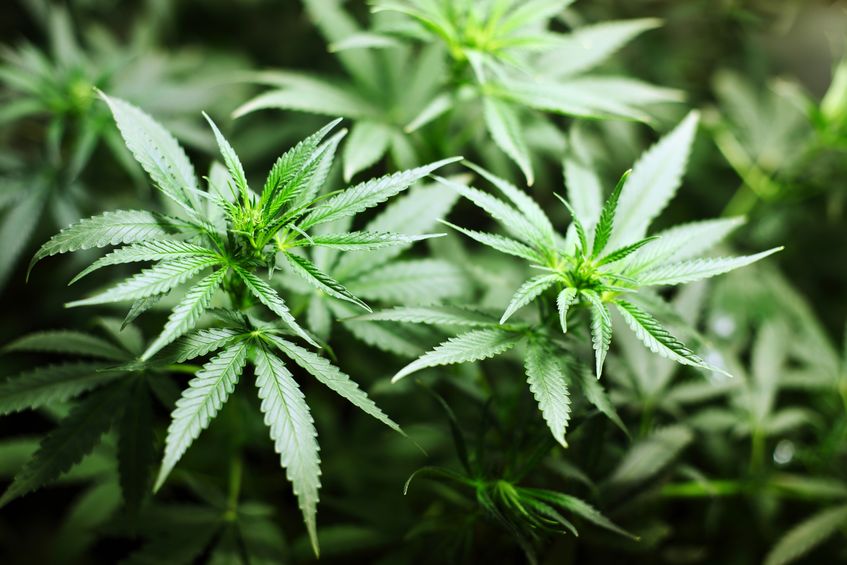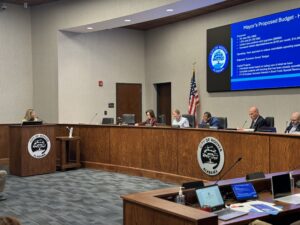Citizen group calls for full legalization of cannabis

The Alabama Cannabis Coalition on Friday called for the full legalization of cannabis. Alabama Cannabis Coalition Marty Schelper told Alabama Today that her group favors allowing the people of Alabama to grow their own marijuana. “We want the right of home grow,” Schelper said. The Alabama Legislature has passed legislation that will allow licensed growers to grow marijuana, but if you are not a licensed and regulated grower it will remain illegal to possess the plant. “Prohibition does not benefit anyone,” Schelper said. On Thursday, President Joe Biden pardoned 6,000 people who were convicted in the federal system for marijuana crimes. “It is an election year stunt,” Schelper said of the Biden gesture. “It does not affect many people in Alabama.” Schelper explained that most federal marijuana arrests are people arrested by agencies like the National Park Service or Capitol Police. Most marijuana convictions are in state court. “While the Alabama Cannabis Coalition is grateful for any move towards the end of Cannabis Prohibition, the lives and families that have been destroyed the past 85 years by unconstitutional actions will never see reparations for their personal losses Cannabis Prohibition has caused,” Schelper said in a statement. “It is time for the misinformation campaign regarding Cannabis to end and restore Constitutional freedom and liberty to all of our citizens in every State. Cannabis must be removed from the Controlled Substance List. Ending Cannabis Prohibition is very similar to ending Alcohol Prohibition that created deadly crime and a black market. Legal exchanges subject to market discipline and scrutiny of the courts for fraud, contaminants, etc. will be superior to what we observe, just as returning alcohol to these constraints ended much of the crime and gang activity associated with prohibition.” Schelper said that in addition to home grow legalization, they want the legislature to pass full decriminalization of marijuana and have existing convictions expunged from people’s records. “Lives have been destroyed,” Schelper said. “They can’t get a job. They can’t own a firearm.” Schelper said that there needs to be changes to the medical marijuana bill. “We appreciate any movement toward full decriminalization, but we are not happy with that legislation,” Schelper said. “That bill is going to have to be revisited every year.” Schelper expressed concerns that the legislation creates a cartel where a handful of marijuana growers and processors control the whole industry to their benefit, The legislation creates the Alabama Medical Cannabis Commission, which is in the process of awarding a limited number of licenses to businesses to grow, process, and transport marijuana, and sets the regulations for the training of doctors authorized to recommend medical marijuana in Alabama. To connect with the author of this story, or to comment, email brandonmreporter@gmail.com.
Alabamians can apply for a Medical Cannabis business license starting Thursday

On September 1, the Alabama Medical Cannabis Commission will allow interested Alabamians to download the forms to apply to be a licensed medical marijuana grower, transporter, processor, dispensary operator, or vertical integrator. Alabama Today spoke with Antoine Mordican, who hopes to be one of the medical cannabis growers on Monday. “The commission published their fees on their website today,” Mordican said. “The fee ($40,000 to be a grower/cultivator) is about what I expected.” Cultivator licenses are $40,000 a year, integrator $50,000, processor $40,000, secure transporter $30,000, and state testing laboratory $30,000. The fee must be paid annually, and the number of licenses is strictly controlled by the state. A non-refundable application fee of $2,500 must also be paid to the Commission just for applying for a license. Mordican, an engineer, said that his facility would be all indoors and use hydroponics. “We will use LED lighting throughout (to grow the plants), and there will be sensors in every room so that the plants get the water that they need.” “There will be no wastewater,” Mordican continued. “There will be a water recirculation system so that it all gets used by the plants.” Mordican said that he is still in the “raising capital” phase of this venture but explained he has been growing hemp for going on three seasons, so all of his processes for growing cannabis are currently in use by him in the real world. However, the marijuana growing facility would be new and a custom build from the ground up. Mordican said that “building relationships” is preferable to him over simply finding financiers who want to make a fast buck in the medical cannabis industry. Medical marijuana is harvested from the buds, meaning that the rest of the plants become waste products. Mordican said that he hopes to be able to recycle the excess plant material as hempcrete or other industrial applications. “There is no composting,” in Mordican’s system because hydroponics do not require a soil medium, Mordican explained. Mordican’s facility will be in Jefferson County. County Commissions and city governments will have a say on whether or not marijuana cultivation will be allowed in their jurisdictions. Chey Garrigan is the executive director and founder of the Alabama Cannabis Industry Association. “We are working with producers on understanding the licensing process,” Garrigan said. “Potential producers need to understand that there is going to be some upfront costs involved with applying for a license.” The Commission has estimated that it will be late 2023 at the earliest before Alabamians will be able to purchase Alabama-grown medical cannabis, as the licensing process will take 11 months, and then the licensees still have to build their facilities. “The important thing to us is that Alabamians with a legitimate medical need can lawfully get the help that they need,” Garrigan said. The Alabama State Legislature passed medical cannabis legislation in the Spring of 2021 and tasked the Alabama Medical Cannabis Commission with regulating the new industry. According to the commission’s latest timeline, applicants have until October 17 to request application forms. According to recent polling, marijuana has surpassed cigarettes and tobacco use, reaching a new all-time high. 16% of Americans report having used marijuana in the last week versus just 11% for cigarettes. Cigarette usage dropped from 16% last year to 11% in the most recent survey, while marijuana has increased from 12% use to 16% in the same time period. Marijuana, whether used medically or recreationally, remains illegal federally. To connect with the author of this story, or to comment, email brandonmreporter@gmail.com.
Alabama medical cannabis license dates to stay the same

An Alabama regulatory commission has plenty to do before people can apply for medical cannabis licenses, so it won’t push for a date that might allow sales next year, a commission official said. The Alabama Medical Cannabis Commission had said earlier that it might ask for the date to be moved up. It decided last week not to do so, the Montgomery Advertiser quoted commission Vice Chairman Rex Vaughn as saying. Before people can apply, the commission has to establish rules and train physicians, Vaughn noted. It also must create a central database to register patients by next September. Registration cards will cost up to $65 a year. Since would-be growers and distributors cannot apply for licenses before Sept. 1, 2022, the substance probably won’t be available before 2023, supporters of medical marijuana have said. But Vaughn noted that the legislature would have to change the date, and he said asking it to do so could open the way for those who want to weaken the law. “We could lose what we’ve got,” he said. The legislature approved the medical cannabis bill in May after hot debate in the House, which had blocked earlier bills. The commission must decide license applications within 60 days. “If you start looking at the timelines for what it’s going to take to get rules and regulations approved, and the growth cycle and the 60 days that people have to get in business after they get the license, it starts adding up,” John McMillian, the commission’s executive director, said after the commission’s meeting last week. Sen. Tim Melson, a Florence Republican and sponsor of a bill to move up the date, said he supported the commission’s decision because he is in favor of a program implemented in a “thoughtful and correct” manner. Once available, doctors will be able to prescribe cannabis for at least 16 conditions including cancer, post-traumatic stress disorder, and chronic pain. Cannabis would be available as tablets, capsules, gummies, lozenges, topical oils, suppositories, patches, and in nebulizers or oil to be vaporized. The law forbids smoking or vaping medical cannabis or baking it into food. The law also forbids the recreational use of marijuana. Republished with the permission of the Associated Press.


